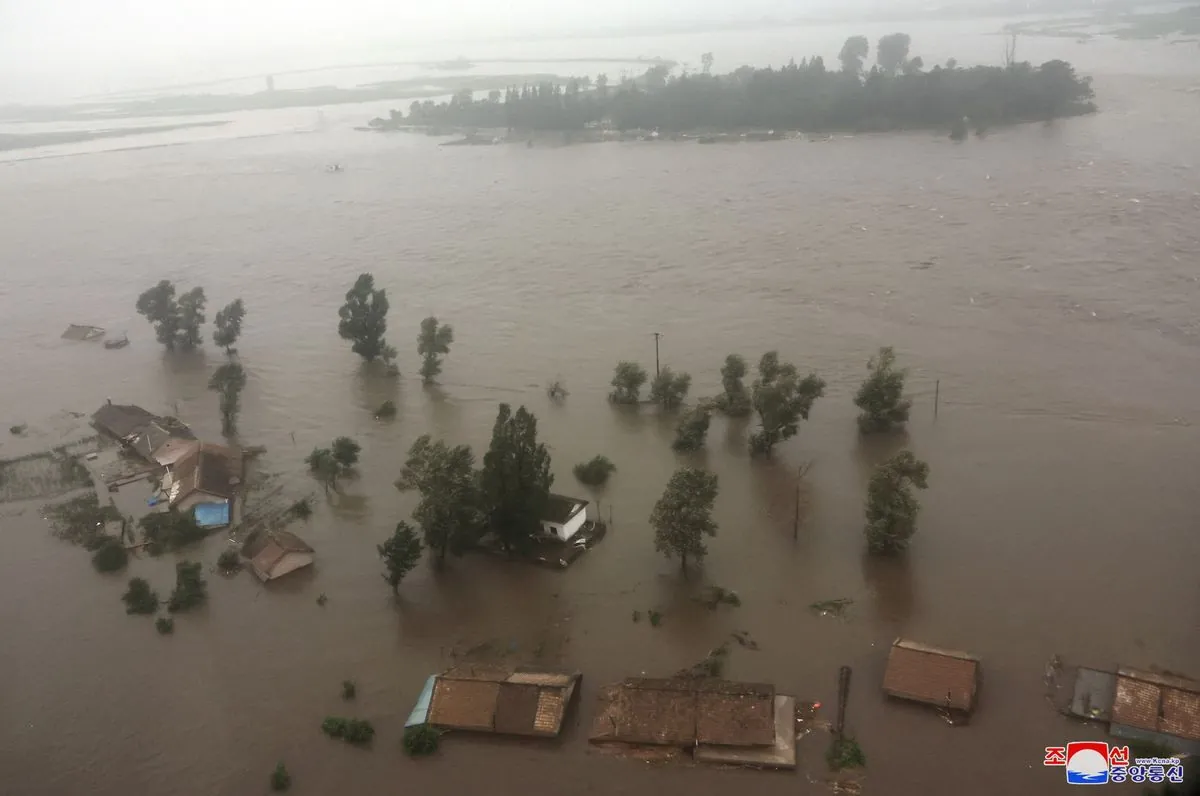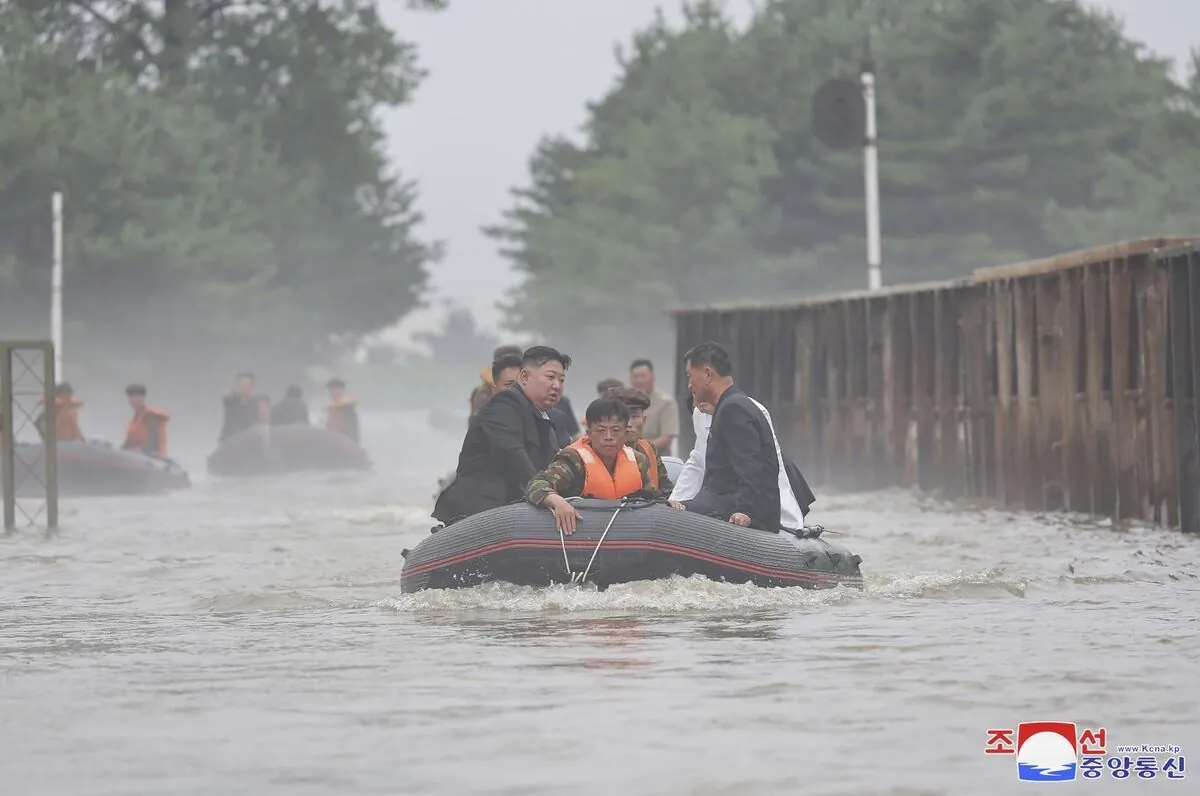North Korea Rejects Foreign Aid for Flood Recovery, Relocates Victims
North Korea declines international assistance for flood recovery, opting for self-reliance. Kim Jong Un orders relocation of 15,400 displaced residents to Pyongyang for better care.

In a recent development, Kim Jong Un, the Supreme Leader of North Korea, has announced that the country will not seek external assistance for flood recovery efforts. This decision aligns with North Korea's long-standing policy of self-reliance, known as Juche, which has been a cornerstone of the nation's ideology since its inception.
The floods, which occurred in late July 2024, have significantly impacted the northwestern regions of North Korea, particularly the city of Sinuiju and the neighboring town of Uiju. The damage is extensive, affecting 4,100 homes, 7,410 acres of agricultural land, and various public infrastructures including roads and railways.
In response to this crisis, Kim Jong Un has ordered the relocation of approximately 15,400 displaced residents to Pyongyang, the capital and largest city of North Korea. This group includes vulnerable populations such as mothers, children, elderly individuals, and disabled soldiers. The government estimates that the rebuilding process will take two to three months to complete.

Kim Jong Un personally visited the affected areas, conducting a two-day tour of Uiju to assess the damage and discuss recovery strategies with local officials. State media praised his leadership, emphasizing his commitment to the welfare of the North Korean people.
Despite offers of humanitarian support from traditional allies Russia and China, as well as international aid organizations, North Korea has chosen to tackle the crisis independently. Kim Jong Un expressed gratitude for these offers but reiterated the country's preference for self-reliance in addressing domestic issues.
This approach is not unprecedented for North Korea. In 2022, during the COVID-19 outbreak, the country similarly rejected aid offers from South Korea. The current decision to decline assistance comes at a time of heightened tensions between North and South Korea, primarily due to North Korea's nuclear ambitions and South Korea's expanding military cooperation with the United States and Japan.
Kim Jong Un has also accused South Korean media of exaggerating the extent of the flood damage and casualties, describing it as a "smear campaign" against his government. This accusation further underscores the strained relations between the two nations, which have been divided by the Korean Demilitarized Zone (DMZ) since the end of the Korean War in 1953.
North Korea's response to this natural disaster reflects its broader approach to governance and international relations. The country's centrally planned economy and limited access to international resources present unique challenges in disaster recovery. However, the government's commitment to self-reliance remains unwavering, even in the face of significant hardship.
As North Korea embarks on its recovery efforts, the international community will be watching closely. The country's ability to manage this crisis independently will be a test of its resilience and the effectiveness of its self-reliance policy.
"What we regard as the best in all realms and processes of state affairs is the firm trust in the people and the way of tackling problems thoroughly based on self-reliance."
This statement encapsulates North Korea's approach to the current crisis and its broader philosophy of governance. As the nation works to rebuild and recover, the world will observe how this self-reliant strategy unfolds in the face of significant challenges.


































